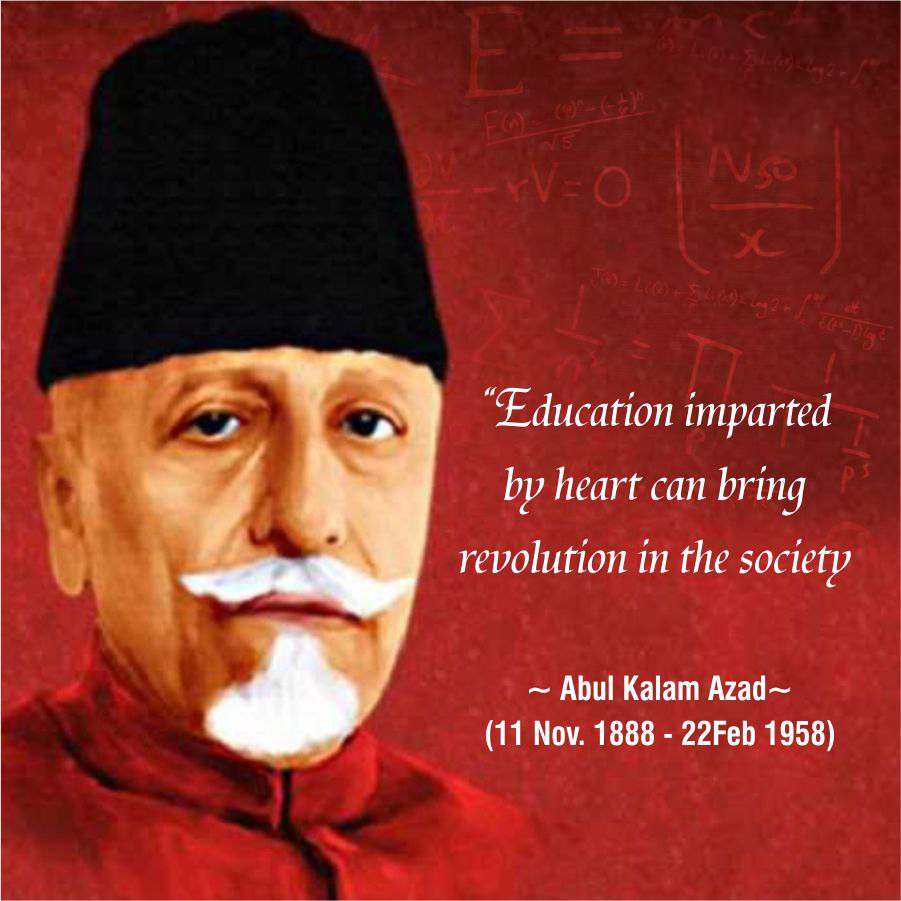Abul Kalam Muhiyuddin Ahmed Azad (11 November 1888 to 22 February 1958) was an lndian scholar and a senior political leader of the Indian independence movement. Following the lndia’s independence movement, he became the first Minister of Education in the Indian government. ln 1992 he was posthumously awarded India’s highest civilian award, the Bharat Ratna.
ln 1923, at an age of 35, he became the youngest person to serve as the President of the lndian National Congress..He served as Congress president from 1940 to 1945, during which the Quit India rebellion was launched. Azad was imprisoned, together with the entire Congress leadership, for three years.
Azad remained a close confidante, supporter and advisor to prime minister Nehru, and played an important role in framing national policies. Azad masterminded the creation of national programmes of school and college construction and spreading the enrolment of children and young adults into schools, to promote universal primary education.

